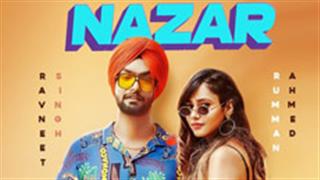Maintaining its ban on import of Indian films, Pakistan has decided not to exempt even those jointly produced between Bollywood and Lollywood or featuring Pakistani
actors.
Despite an official ban from Pakistani cinemas and public TV channels, thousands of Indian titles are openly available in markets as DVDs, VCDs and, for those with dishes
on their roofs, satellite broadcasts.
The government, however, has so far refused to budge from its ban on films made by India, in part citing Muslim sensibilities.
Indian movies, conservative by western standards, only showed their first on-screen kiss a few years ago, but Islamabad fears even the long-obligatory steamy wet-sari
scene may get some mullahs fuming.
Islamic hardliners in the arch-conservative North West Frontier province have launched periodic crackdowns against "vulgar" movies, prompting local police to rip down
posters judged obscene.
"No, well not be allowing the import of Indian films, not even limited ones for the time being," says Ziauddin Ahmed, chairman of the Pakistan Film Censor Board. "We are
sensitive to our cultural requirements and censor policy."
In the golden age of Pakistani cinema in the 1960s and 70s, four studios in Lahore and two in Karachi pumped out regular blockbusters, producing 300 movies in five
languages in 1973, a good number of them box-office blockbusters.
But since then Pakistan's studios have suffered a long steady decline, thanks to falling production values, simplistic and bloody plotlines and increasing censorship under
various military regimes.
Last year, the few studios left in the eastern city of Lahore produced only 14 movies, and all of them bombed at the box office.
With the decline of Pakistani cinema, the number of movie houses has withered from more than 2,000 screens to around 300. Many have been torn down or converted into
shopping malls.
"At the moment it has become absolutely vital for us to convince the government to allow the import of Indian films," says cinema owner Jehanzeb Baig, chairman of the
Pakistan Cinema Exhibitors' Association.
"The import would give us an emergency boost which is badly needed. There is absolutely no other way left to support the cinema industry."
We want 'sleazy' Indian films!
Tuesday, August 02, 2005 18:10 IST

















